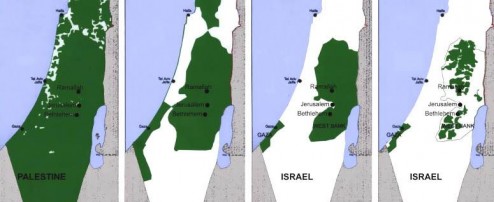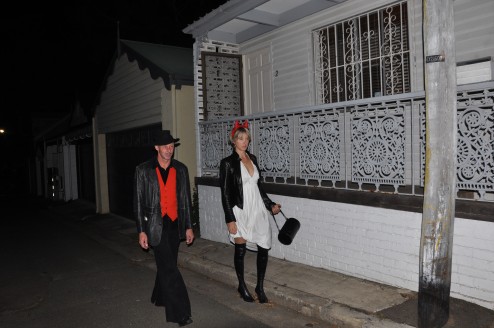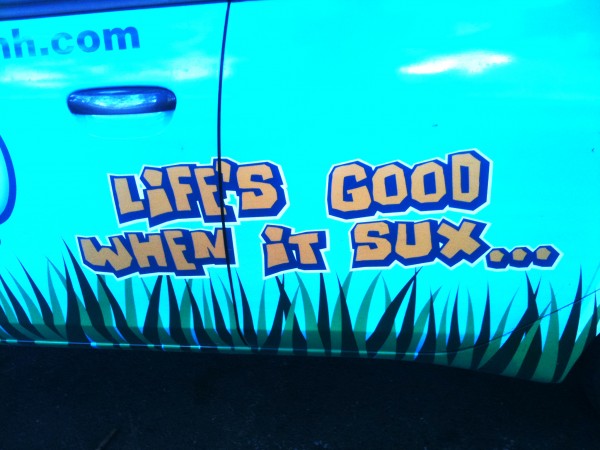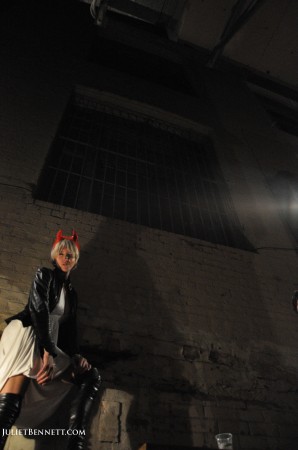 Today I got my first rejection from an academic journal I submitted a paper too.
Today I got my first rejection from an academic journal I submitted a paper too.
Today I was reminded of my lack of knowledge and lack of experience.
Today I stressed about whether I would have to do jury duty.
Today I worried about a presentation I haven’t yet practiced.
Today I felt like I was stuck in a war zone inside my own head.
Today I was reminded that nothing comes easy.
Today I was reminded that I will never have all the answers.
And today I was reminded that while it may take a few tries, and involve going around in circles, eventually you realise that the circles are actually spirals and that you have arrived at your destination.
Let me tell you about my day…
At midday, before I started work, a Jewish American author and activist lectured about her experiences in Palestine and Israel. It left me confused and depressed. There are just so many issues intertwined: identity battles, discrimination against race or religion, about land and resources, weapons and violence, and cycles of oppressor and oppressed. Anna Baltzer spoke about the horror stories of the Palestinians, and thought about the horror stories I have also heard from the other side.
Anna’s stories made me think not only about Israel, but of the colonialisation of the rest of the world. There are two (or more) sides to every story. And each version of the story is passionate, emotional, and fully true in the eyes of the beholder.
I know from deep in the eyes of my Israeli friends the hurt they carry from the Holocaust, and the connection between the harm others have caused them and their desire to have their own nation state. And I, a white Australian, am the last person in the world who can point a finger and judge the occupation of land that is not rightfully theirs. Of course there are always stories within stories. There are stories that go back thousands of years and there are stories that go back millions. Depending on how you choose to frame your story will change the implications of the story you tell.
“Jews are rightful owners of the land – God promised it to them,” some say, quoting the Bible.
“No they’re not,” others say, “God banished them from it.”
Some extreme Fundamentalist Christian groups want the Jews to reclaim the land, hoping it will fasten the coming of the Armageddon.
Other Christians are Palestinians who suffer in poverty and oppression no thanks to their brothers.
Religion is (ab)used by humans to justify one thing or another, and an important point Anna made was distinguishing between:
– an Israeli (someone who lives in Israel, which includes Palestinians – Jew, Christian, and Muslim),
– a Zionist (someone who wants Israel to be a Jewish state which can include Christians),
– a Jew (which might be by bloodline or/and by religious belief – noting that many Jews are secular).
These can all meet together in one person, but can also be separate, as seen in Anna who was an American-Jew who is not a Zionist or an Israeli.
This map above is a tough reality. What would a map of Australia before 1700, then 1800, 1900, 2000 – look like? Probably pretty much the same. At the end of the day, the horrors that the Palestinians live through every day appear, to me, as unacceptable. Yet so do the conditions that Aboriginal Australians live in – although this is not intentional – but does that mean it’s ok?
These are horrible predicaments. I was born in Australia and this is my beloved country. Am I an occupier or indigenous to this land? Where do I belong?
My Israeli friends born in Israel, who are forced to spend two or three years of their youth in the army, who stand at borders and follow orders and put their lives on the line for their people and their beloved country… where do they belong?
The world sucks in so many ways.
The world is a living hell for so many people. And for those who appear to be living in heaven, our minds are still tormented by the gross disparity and by the fear caught up in protection measures required to maintain our luxuries. No wonder I was depressed by the end of today. The events in the world seemed utterly hopeless.
It left me thinking that maybe I should give up on searching for truth. Maybe I don’t even want to know the truth – it’s too horrible and seems to be situations that are impossible to solve. Maybe I should give up on writing and academia, and go get a paper job that earns good money – close my eyes and ears, and pretend the world doesn’t happen like this? Luckily my day didn’t end on this nihilistic note. But this entry is long enough so I’ll tell you more about that tomorrow.
 Is your optimal trajectory something that you choose, or something that chooses you?
Is your optimal trajectory something that you choose, or something that chooses you?

 “Camus said there is only really one serious philosophical question which is whether or not to commit suicide,” said Alan Watts, quoting Albert Camus (going on to say he believes there are five serious philosophical questions… see audio book on you tube below)
“Camus said there is only really one serious philosophical question which is whether or not to commit suicide,” said Alan Watts, quoting Albert Camus (going on to say he believes there are five serious philosophical questions… see audio book on you tube below) While in the past I’ve aspired to balance, I’ve come to embrace the imbalance, accepting that balance is found in the wholeness of all that exists, and over time – it doesn’t have to exist in every moment I experience.
While in the past I’ve aspired to balance, I’ve come to embrace the imbalance, accepting that balance is found in the wholeness of all that exists, and over time – it doesn’t have to exist in every moment I experience. 

